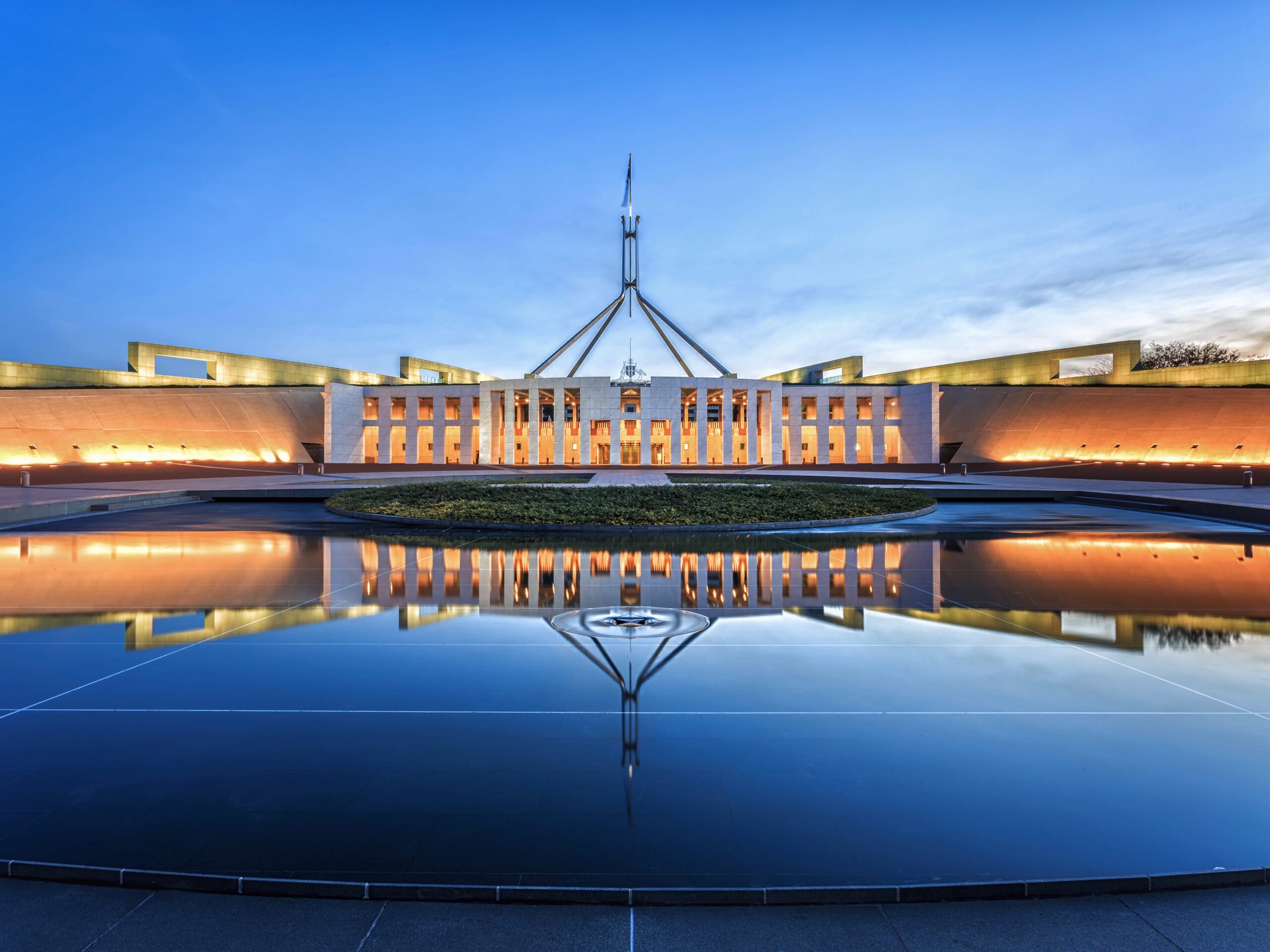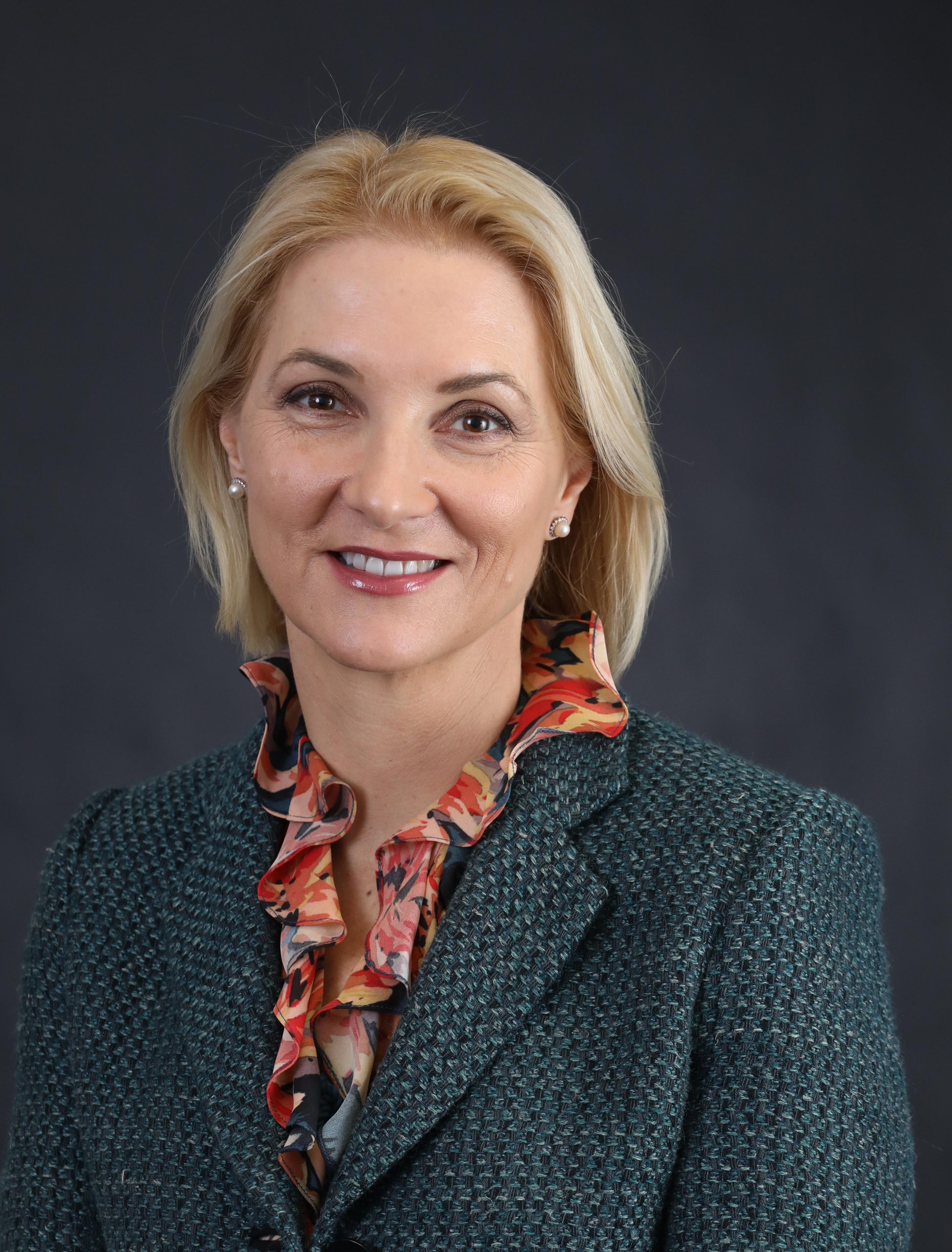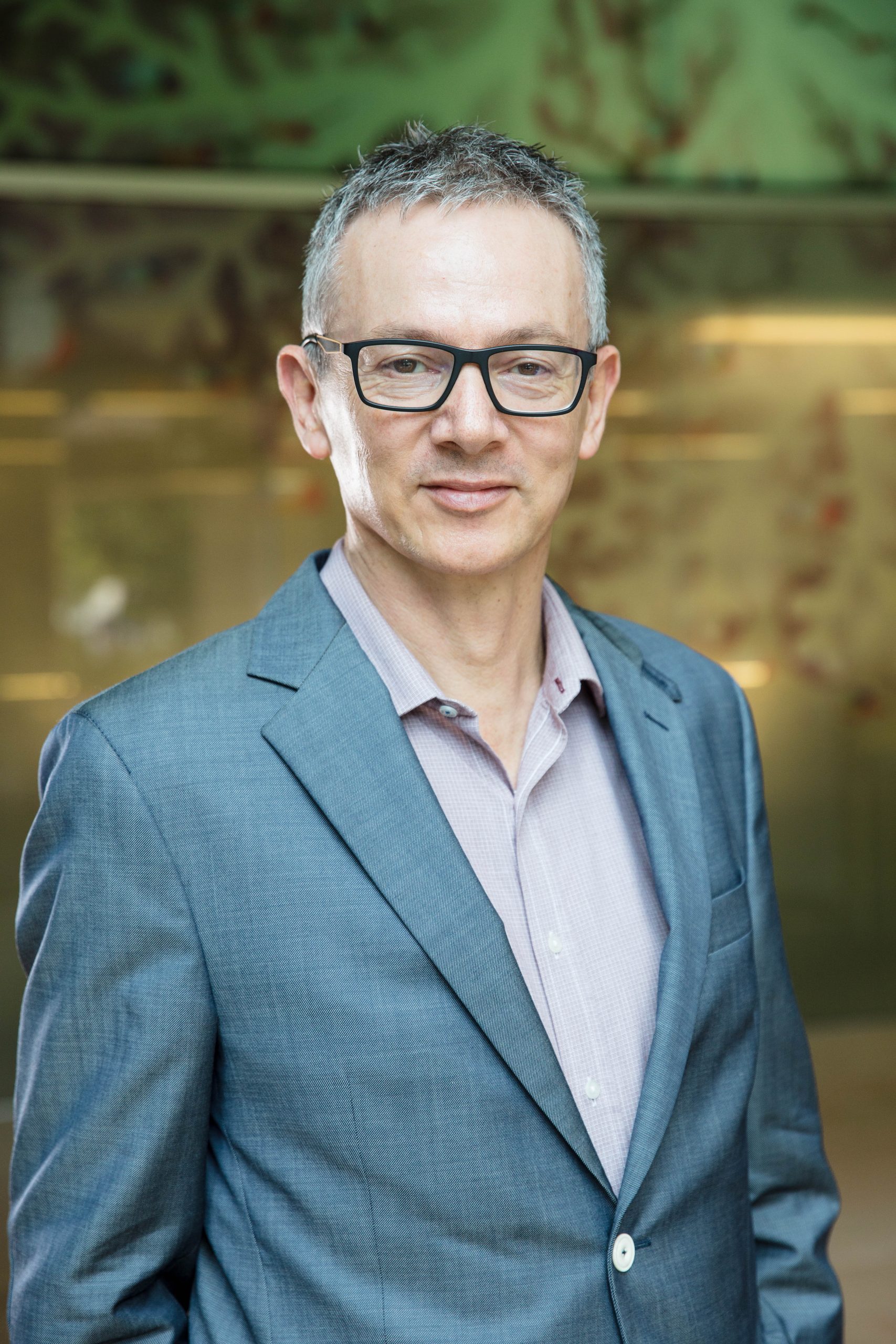Summary
In what could well be the last Budget before the next election, the main focus of the Budget has been on supporting families with the rising cost of living and securing Australia’s manufacturing capacity with the Future Made in Australia commitment.
The second consecutive Budget surplus has been delivered, once again due to higher than expected commodity prices. Commodity prices are expected to fall in the future, and the Government has committed to diversifying our economy with more high value advanced manufacturing.
The Government has further elaborated the Made In Australia plan announced by the Prime Minister in April. Shaping up as the signature policy initiative of this Government, it is focused on the green economy industries, resources and defence.
What is largely missing from the Made In Australia Plan is the significant additional public investment in research needed to underpin this manufacturing led transformation of the Australian economy. (There is an increase to the ARC’s Discovery program.) There will be a new strategic review of Australia’s R&D system ‘to determine how we can get more value from every taxpayer dollar invested in research, maximise the contribution of science and R&D to the broader economy and maintain our competitive edge.’ With health and medical research representing 28% of all Australian R&D[1], Research Australia will continue to champion a focus on health and medical research as part of this review.
In the Health Portfolio existing NHMRC research funding is maintained, with a slight increase just to account for forecast inflation, while the MRFF Funding is not indexed and remains at $650m per year for the next 4 years.
In Higher Education, we have seen the first down payments on the Government’s response to the Universities Accord, with a change to the indexation of HECS/Help debts and paid placements for some students. There is also a welcome increase to the ARC’s Discovery Program. Other announcements tonight include a limit to international student numbers tied to universities’ capacity to create more student housing. The limits to international student numbers, however, will reduce universities’ capacity to invest in research in a further challenge to the Made in Australia ambitions of the Government.
The rising cost of living has been the defining political issue of this Government. In last year’s Budget, the CPI was forecast to be 3.25% for 2023-24, The Budget tonight expects inflation to have been 3.5% for the current financial year and to fall to 2.75% over 2024-25.
Inflation increases the cost of undertaking health and medical research and innovation. Consistent with Research Australia’s sustained advocacy on this issue, this Budget sees the Government’s funding to the NHMRC’s Medical Research Endowment Account keep up with projected inflation for the third consecutive year. MRFF funding meanwhile is static at $650 million per annum, meaning it fails to keep up with inflation and is declining in real terms. This is despite an additional $323 million being available from the MRFF for expenditure in 2024-25.
Research Australia will continue working with Government to unlock the full potential of the MRFF. The Board overseeing the Future Fund says $973 million is available for grants in 2024-25, but the Government has only budgeted for disbursement of $650 million. This means an extra $323 million – a 50% increase in the MRFF – could be invested in life-changing and economy-building Australian medical research if the Federal Government realised the full potential of the MRFF.
Key funding for Australian health and medical research in tonight’s Budget includes:
-
- $1.4bn over 13 years investment via the Medical Research Future Fund (MRFF)
- $18.8m for the national Clinical Trials One Stop Shop
- $1.1m for Australian Prevention Partnership Centre to deliver policymakers the evidence-base for preventive health
- As part of the $32.2m Specialist Dementia Care Program, Australian Dementia Network researchers will be funded to ready the health system for promising new dementia and diagnostic treatment options
Please read on for our summary of what this Budget means for health and medical research and innovation.
Our members-only Post-Budget Briefing webinar will unpack what is in this year’s Budget on Thursday 23 May, 12 noon to 1pm AEST. Members of Research Australia’s eminent Health Economics Roundtable will provide a briefing on the economic implications of the Budget on health and medical research and Australia’s health system – please CLICK HERE to register.
Health Portfolio
NHMRC’s MREA Funding
Funding for the NHMRC’s Medical Research Endowment Account has increased slightly to $940 million in 2024-25, the same as forecast in last year’s Budget. An increase of around 3% over 2023-24, this is roughly equivalent to forecast inflation of 2.75%. There are similar annual increases in the next two financial years. Overall, the MREA is set to at least keep pace with expected inflation over the next few years, an improvement on years of real declines in funding.
| $m. | 23-24 | 24-25 | 25-26 | 26-27 | 27-28 |
| Funding to MREA
2024 Budget |
910.652 | 940.330 | 961.099 | 979.749 | 999.346 |
| Funding to MREA
2023 Budget |
910.652 | 940.330 | 962.039 | 949.747 | |
| Funding to MREA
2022 Budget (OCT) |
905.160 | 922.365 | 938.095 | ||
| Funding to MREA
2022 Budget (MAR) |
891.094 | 905.355 | 918.985 |
Medical Research Future Fund
The funding available from the MRFF each year is dependent on the investment return on its capital. For 2024-25 the Future Fund Board of Guardians has determined the amount available for grants of financial assistance is $973 million.[2] Despite this, only $650 million has been made available as funding in 2024-25. After accounting for inflation, real funding from the MRFF continues to decline.
| $m. | 23-24 | 24-25 | 25-26 | 26-27 | 27-28 |
| Funding from MRFF
2024 Budget |
650.0 | 650.0 | 650.0 | 650.0 | 650.0 |
| Funding from MRFF
2023 Budget |
650.0 | 650.0 | 650.0 | 650.0 | |
| Funding from MRFF
2022 Budget (OCT) |
650.0 | 650.0 | 650.0 | ||
| Funding from MRFF
2022 Budget (MAR) |
650.0 | 650.0 | 650.0 |
There are programs that could be extended or expanded immediately, including support for early and mid career researchers and continuation of the highly regarded REDI program. Other programs could be established or piloted relatively easily, including the Clinical Research Fellowships proposed previously by Research Australia.
Research Australia will continue our campaign to increase the funding released from the MRFF, which has no bearing on the Budget deficit or surplus.
Education Portfolio
Nearly half of all Australian health and medical research is undertaken in the higher education sector, and the Department of Education makes a significant contribution to the funding of this research through several programs, as outlined below.
Universities Accord
The final report of the Universities Accord Expert panel was provided to the Government earlier this year, and the Budget provides the Government’s first substantive response.
There is a change to the indexation of HECS/Help debts and paid placements for some students. Other announcements tonight include a welcome increase to the ARC’s Discovery Program
The limits to international student numbers, however, will reduce universities’ capacity to invest in research in a further challenge to the Made in Australia ambitions of the Government.
ARC Programs
The Australian Research Council’s Funding Programs are critical to Australian publicly funded research, including to the life sciences and medical technologies.
Discovery Program
In a major boost, funding to the ARC for the Discovery Program increases by $105 million in 2024-25 compared to this year, and a further $30 million in 2025-26. This is the first substantive increase in funding for the Discovery Program in many years (although coming off an underspend in 2023-24), and a welcome boost to research funding. It reflects the call of the Universities Accord Expert Panel for a substantial increase in ARC funding for research, although increases have been on the cards since the 2022 Budget, as can be seen in the table below.
| $m. | 23-24 | 24-25 | 25-26 | 26-27 | 27-28 |
| 2024 Budget | 524.526 | 629.744 | 630.410 | 648.369 | 655.549 |
| 2023 Budget | 552.390 | 599.499 | 629.581 | 646.895 | |
| 2022 Budget (OCT) | 551.867 | 596.388 | 622.986 | ||
| 2022 Budget (MAR) | 535.915 | 562.406 | 585.206 |
Linkage Program
The ARC Linkage Program has been charged with delivering the Industry Fellows component of the University Research Commercialisation Scheme and accordingly the boost to the Linkage Program’s funding in 2022-23 is maintained in 2024-25 and across the forward estimates, with annual increases of around 8% to 9% per annum, up to 2026-27, at a rate higher than expected inflation. These increases were first forecast in the 2022 Budget and are not a response to the Universities Accord.
| $m. | 23-24 | 24-25 | 25-26 | 26-27 | 27-28 |
| 2024 Budget | 328.845 | 397.556 | 406.789 | 435.368 | 446.903 |
| 2023 Budget | 343.808 | 373.989 | 402.784 | 430.918 | |
| 2022 Budget (OCT) | 345.731 | 374.289 | 400.792 | ||
| 2022 Budget (MAR) | 357.704 | 375.595 | 390.950 |
Research Support
In addition to providing funding for the ARC research programs, the Department of Education provides funding to universities to help cover the indirect costs of research.
The 2024 Budget continues the annual increases of around 5% per annum which commenced with the 2022 Budget, meaning funding for this program increases slightly in real terms if inflation is as predicted.
Research Support Program
| $m. | 23-24 | 24-25 | 25-26 | 26-27 | 27-28 |
| 2024 Budget | 1005.282 | 1064.389 | 1100.438 | 1131.822 | 1161.757 |
| 2023 Budget | 1005.282 | 1064.389 | 1101.524 | 1131.792 | |
| 2022 Budget (OCT) | 1004.314 | 1058.779 | 1089.934 | ||
| 2022 Budget (MAR) | 978.674 | 1,002.668 | 1,028.230 |
Funding for the indirect costs of research funded by the MRFF is provided from the Research Support Program. With the MRFF providing hundreds of millions of dollars in funding to universities, a substantial increase in the Research Support Program is needed just to maintain the levels of research support funding for research projects at their current already inadequate level.
The Universities Accord Final Report recommended substantial increases in funding for the indirect costs of research; this recommendation is not reflected in this Budget. Research Australia continues to call for a whole of government approach to the issue of funding indirect research costs, including for medical research institutes.
Research Training
The Research Training Program (RTP) provides funding to universities to support higher degree by research students (mostly PhDs). Funding for the RTP declined in absolute terms between the 2019 and 2020 Budgets, and only partly recovered in the 2022 Budget. Consistent with the 2023-24 Budget, the latest Budget provides an increase of 5.8% in 2024-25, before the annual increase drops to around 3.3%. Inexplicably, funding actually declines slightly in 2026-27, before increasing again in 2027-28.
The Universities Accord Final Report has recommended a substantial increase in PhD stipends; this recommendation is not reflected in this Budget.
| $m. | 23-24 | 24-25 | 25-26 | 26-27 | 27-28 |
| 2024 Budget | 1154.911 | 1222.827 | 1264.231 | 1259.314 | 1289.728 |
| 2023 Budget | 1154.911 | 1222.827 | 1264.691 | 1260.070 | |
| 2022 Budget (OCT) | 1153.800 | 1216.372 | 1251.497 | ||
| 2022 Budget
(MAR) |
1124.344 | 1151.909 | 1181.153 |
Australia’s Economic Accelerator
The Australia’s Economic Accelerator was announced in the March 2022 Budget, with the legislation passed in 2023. This is a $1.6 billion program over 10 years, administered by the Department of Education to overcome the valley of death that currently exists between the point at which public research funding ceases (typically publication) and the point at which commercial investors are prepared to get involved. Unlike ARC programs, the Accelerator is open to application for medical products. The funding for the program reflects the delayed start in 2022-23 and slower than expected spending in 2023-24 with higher funding over 2024-25 and subsequent years.
| $m. | 23-24 | 24-25 | 25-26 | 26-27 | 27-28 |
| 2024 Budget | 61.851 | 177.639 | 180.742 | 179.580 | 170.628 |
| 2023 Budget | 99.536 | 163.247 | 161.646 | 212.089 | |
| 2022 Budget (OCT) | 99.444 | 162.395 | 159.95 | ||
| 2022 Budget (MAR) | 99.444 | 149.498 | 154.601 |
National Collaborative Research Infrastructure (NCRIS) Program
The NCRIS Program funds vital national research infrastructure needed to support Australian research. The most recent National Research Infrastructure Roadmap nominated synthetic biology, digital research infrastructure, collections (biobanks) and facilities to scale up materials for clinical trials.
This Budget maintains the forecast annual boost to NCRIS of more than $100 million in 2024-25. The new Research Infrastructure Investment Plan should provide more detail about how this funding will be allocated once it is completed; hopefully it will be announced soon.
| $m. | 23-24 | 24-25 | 25-26 | 26-27 | 27-28 |
| 2024 Budget | 402.290 | 502.648 | 463.501 | 372.614 | 356.057 |
| 2023 Budget | 402.290 | 503.116 | 462.850 | 372.323 | |
| 2022 Budget (OCT) | 400.028 | 499.848 | 458.338 | ||
| 2022 Budget (MAR) | 396.826 | 496.739 | 454.441 |
Industry, Innovation and Science Portfolio
National Reconstruction Fund
Fulfilling an election promise, the legislation to create the National Reconstruction Fund (NRF) was passed in early 2023.
The NRF will invest $15.0 billion over 7 years from 2023–24 to provide targeted co-investments in seven priority areas: resources; agriculture, forestry and fisheries sectors; transport; medical science; renewables and low emission technologies; defence capability; and enabling capabilities. It can provide debt, equity or guarantees, but does not provide grants. The NRFC’s first corporate plan is available here. It commits the NRF to making its first investments before the end of 2024.
CRC Program
The Cooperative Research Centre (CRC) Program is important to health and medical research and innovation, with many of the CRCs funded over the 3 decades of the program being health related. Current CRCs include the Digital Health CRC.
The smaller CRC projects program is also relevant, with recently funded projects including the creation of better brain electrodes and development of a bionic medical device that delivers high-fidelity visual-spatial perception for blind people. Funding for the CRC Program is scheduled to increase slightly faster than forecast in last year’s Budget but not enough to keep up with inflation.
| $m. | 23-24 | 24-25 | 25-26 | 26-27 | 27-28 |
| 2024 Budget | 200.532 | 210.044 | 206.712 | 209.738 | 212.161 |
| 2023 Budget | 200.532 | 208.046 | 205.199 | 209.737 | |
| 2022 Budget (OCT) | 199.962 | 205.054 | 201.579 | ||
| 2022 Budget (MAR) | 193.117 | 197.070 | 193.540 |
CSIRO
The CSIRO has Flagship Programs relevant to health and medical research and is a key collaborator and partner in research. While it generates much of its own revenue it is also funded by the Government. The Government contribution to the CSIRO outlined in the Budget declines in the next financial year by $92 million before modest rises over the forward estimates. There are slight increases on the funding outlined in the 2023 Budget.
| $m. | 23-24 | 24-25 | 25-26 | 26-27 | 27-28 |
| 2024 Budget | 1,008.739 | 916.459 | 931.330 | 932.858 | 948.650 |
| 2023 Budget | 1,008.739 | 934.391 | 945.155 | 948.486 | |
| 2022 Budget (OCT) | 1.005.563 | 919.405 | 931.573 | ||
| 2022 Budget (MAR) | 985.625 | 899.352 | 904.477 |
New beamlines for Synchrotron
ANSTO’s Australian Synchrotron continues its partner-funded $98 million BRIGHT beamline expansion program, with eight new beamlines being constructed. This will nearly double the Synchrotron’s capacity and allow for broader engagement with researchers and industry in a range of applications, from high-tech manufacturing, including aerospace and transport, to health, including drug development and medical implants.
Industry Growth Program
The Industry Growth Program was introduced in last year’s Budget, replacing other similar programs provided by the Department. The Budget forecasts total expenditure of $396.28 million over the four years of the forward estimates, ramping up to $125 million in 2026/27 before dropping back to $56 million in 2027/28.
| $m. | 23-24 | 24-25 | 25-26 | 26-27 | 27-28 |
| 2024 Budget | 37.010 | 76.765 | 101.264 | 124.961 | 56.238 |
| 2023 Budget | 37.010 | 76.765 | 101.264 | 124.961 |
Conclusion
Research Australia will continue to provide analysis and commentary in the coming days and weeks.
Our members-only Post-Budget Briefing webinar to unpack what is in this year’s Budget is on Thursday 23 May, 12 noon to 1pm AEST. Members of Research Australia’s eminent Health Economics Roundtable will provide a briefing on the economic implications of the Budget on health and medical research and Australia’s health system – please CLICK HERE to register.
We invite your responses and reactions to how the 2024 Budget affects you and your work. Please contact Greg Mullins, Head of Policy, greg.mullins@researchaustralia.org
Research Australia continues to advocate to support you and your work!
[1] https://researchaustralia.org/category/hmr-facts/
[2] Australian Government Future Fund, Determination pursuant to section 34(1) of the MRFF Act 2015 Maximum annual distribution for financial year 2024-25, obtained under FOI






